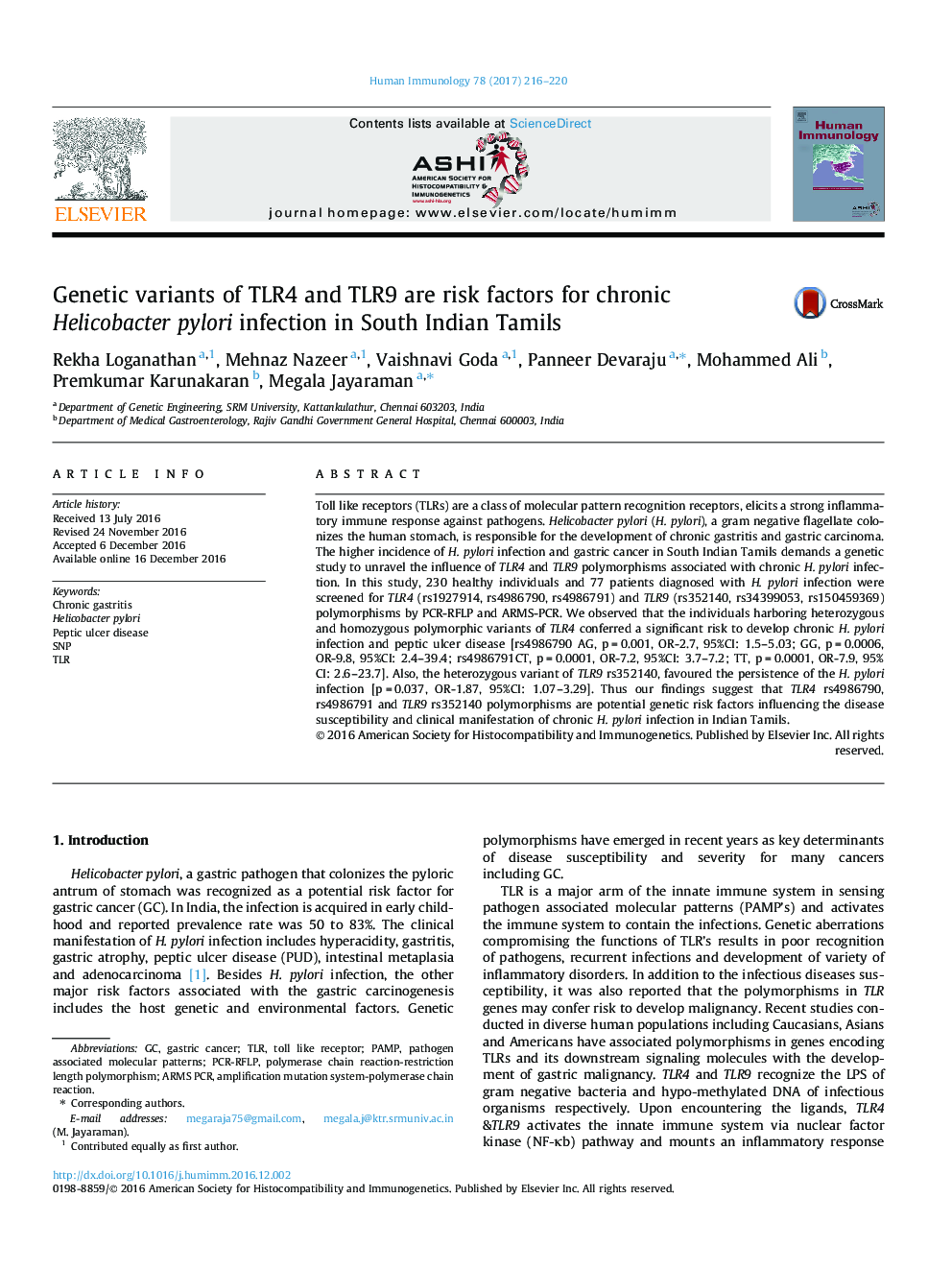| Article ID | Journal | Published Year | Pages | File Type |
|---|---|---|---|---|
| 5666301 | Human Immunology | 2017 | 5 Pages |
Toll like receptors (TLRs) are a class of molecular pattern recognition receptors, elicits a strong inflammatory immune response against pathogens. Helicobacter pylori (H. pylori), a gram negative flagellate colonizes the human stomach, is responsible for the development of chronic gastritis and gastric carcinoma. The higher incidence of H. pylori infection and gastric cancer in South Indian Tamils demands a genetic study to unravel the influence of TLR4 and TLR9 polymorphisms associated with chronic H. pylori infection. In this study, 230 healthy individuals and 77 patients diagnosed with H. pylori infection were screened for TLR4 (rs1927914, rs4986790, rs4986791) and TLR9 (rs352140, rs34399053, rs150459369) polymorphisms by PCR-RFLP and ARMS-PCR. We observed that the individuals harboring heterozygous and homozygous polymorphic variants of TLR4 conferred a significant risk to develop chronic H. pylori infection and peptic ulcer disease [rs4986790 AG, p = 0.001, OR-2.7, 95%CI: 1.5-5.03; GG, p = 0.0006, OR-9.8, 95%CI: 2.4-39.4; rs4986791CT, p = 0.0001, OR-7.2, 95%CI: 3.7-7.2; TT, p = 0.0001, OR-7.9, 95%CI: 2.6-23.7]. Also, the heterozygous variant of TLR9 rs352140, favoured the persistence of the H. pylori infection [p = 0.037, OR-1.87, 95%CI: 1.07-3.29]. Thus our findings suggest that TLR4 rs4986790, rs4986791 and TLR9 rs352140 polymorphisms are potential genetic risk factors influencing the disease susceptibility and clinical manifestation of chronic H. pylori infection in Indian Tamils.
